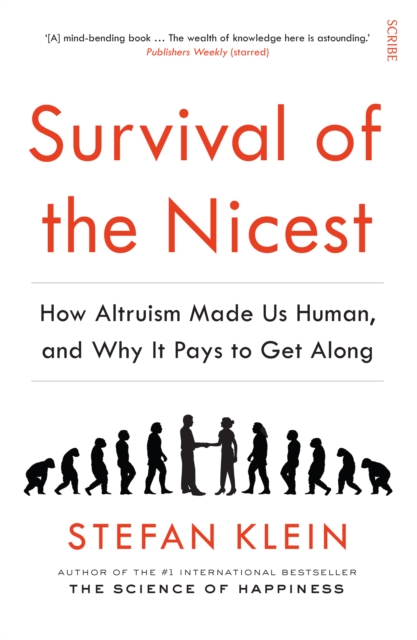
Survival of the Nicest : how altruism made us human, and why it pays to get along EPUB
by Stefan Klein
EPUB
Description
The phrase 'survival of the fittest' conjures an image of the most cutthroat individuals rising to the top. But Stefan Klein, author of the international bestseller The Science of Happiness, makes the startling assertion that the key to achieving lasting personal and societal success lies in helping others.
Klein argues that altruism is in fact our defining characteristic: natural selection favoured those early humans who cooperated in groups. With their survival more assured, our altruistic ancestors were free to devote brainpower to developing intelligence, language, and culture — our very humanity. As Klein puts it, ‘We humans became first the friendliest and then the most intelligent apes.’
To build his persuasive case for how altruistic behaviour made us human — and why it pays to get along — Klein brings together an extraordinary array of material: current research on genetics and the brain, economics, social psychology, behavioural and anthropological experiments, history, and modern culture. Ultimately, his groundbreaking findings lead him to a vexing question: if we’re really hard-wired to act for one another’s benefit, why aren’t we all getting along?
Klein believes we’ve learned to mistrust our generous instincts because success is so often attributed to selfish ambition. In Survival of the Nicest, he invites us to rethink what it means to be the ‘fittest’ as he shows how caring for others can protect us from loneliness and depression, make us happier and healthier, reward us economically, and even extend our lives.
Information
-
Download - Immediately Available
- Format:EPUB
- Pages:272 pages
- Publisher:Scribe Publications Pty Ltd
- Publication Date:30/06/2014
- Category:
- ISBN:9781925113334
Information
-
Download - Immediately Available
- Format:EPUB
- Pages:272 pages
- Publisher:Scribe Publications Pty Ltd
- Publication Date:30/06/2014
- Category:
- ISBN:9781925113334






